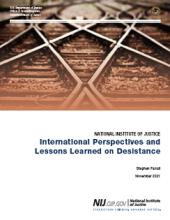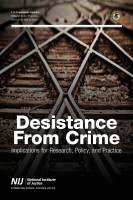International Perspectives and Lessons Learned on Desistance
Date Published
November 2021
Agencies
NIJ
Publication Type
Research (Applied/Empirical),
Issue Overview




